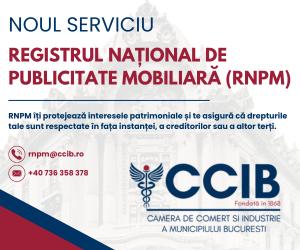Russian oil tankers are managing to circumvent sanctions imposed by the European Union and the United States through a seemingly banal but extremely effective method: flying false naval flags, according to an investigation published today by the European website Follow The Money (FTM). According to the cited source, behind this complex scheme is an international network that deals with the falsification of documents and non-existent maritime records, orchestrated with a precision that defies any international maritime regulation. The investigation shows how a company with its declared headquarters in Beverly Hills, California - Maritime Safety & Technical Administration (MSTA) - provides Russian and Iranian oil tankers with fictitious flags registered in the name of the state of Sint Maarten, an entity that does not even have an official maritime register, an entity that is part of the Netherlands Antilles.
The cited source counted at least 77 oil tankers currently holding false registration documents issued under the flag of Sint Maarten, 30 of which are on the sanctions lists of the US, EU or the UK. What makes this situation a real threat to the global trading system is the fact that MSTA is selling documents and flags on behalf of a state that does not have the necessary legal infrastructure to register ships. In essence, it is an international scam that allows the continuation of trade in Russian oil, despite the restrictions imposed by the international community. Since the imposition of economic sanctions against the Russian Federation, many of the Russian ships have been re-registered under the flag of Sint Maarten in just a few weeks, proving that the system works quickly and efficiently. According to data obtained by FTM journalists, the re-registration takes place immediately after the ships are targeted by restrictive measures, which suggests a clear intention to circumvent international law. The practice is part of a broader strategy, used in particular by the Russian and Iranian fleets, which involves repeatedly changing flags, concealing the identity of the owners and transferring cargo from ship to ship at sea to avoid ports and official controls.
Although the Dutch government officially warned the International Maritime Organization (IMO) as early as April 2024 about the existence of false certificates invoking the name Sint Maarten, concrete action has been slow to appear. In January 2025, the Dutch authorities directly named MSTA as a fraudulent entity that is usurping the maritime identity of the state of Sint Maarten. A warning was sent to all IMO member states by the organization's Secretary-General, but despite these official signals, the company continued its activity unhindered, registering even more ships under the same false flag.
The source cited shows that MSTA, although it claims on its website to be registered in the United States, does not appear in the official registry of the state of California. The building in which the company declares its headquarters is occupied by a postal address provider that serves dozens of other companies. This lack of transparency raises serious questions about who is actually coordinating the operation and what are the interests behind it.
Meanwhile, maritime inspectors in Sint Maarten receive complaints almost daily. With a population of less than 50,000 inhabitants, this small island nation does not have the institutional capacity to combat a fraudulent network with global ramifications. The situation is aggravated by the fact that there is no official white or black list of the IMO registry of legitimate flags, which leaves ports and ship operators in countries such as Bangladesh or Ghana without clear tools for verification.
Journalists from FTM warn that the network behind MSTA is not limited to the Sint Maarten flag. The network has created similar websites, offering listings for Laos (a landlocked country), Timor-Leste, and Matthew Island, an uninhabited volcanic rock that is French territory. In all cases, there is no recognized maritime registry. Moreover, the contacts and maritime agents listed on these sites are largely the same, indicating a coordinated network that exploits legal loopholes and lack of oversight. This expanding scheme not only undermines international sanctions, but also endangers the safety of seafarers, ships, and global maritime trade. Without regulation, real insurance, and legal accountability, these ships become walking dangers on the world's seas. Without a coherent international mechanism to monitor and sanction these practices, MSTA-type networks will continue to thrive, and sanctions imposed for political and economic purposes will remain mere declarations with no real effect on the high seas.












































